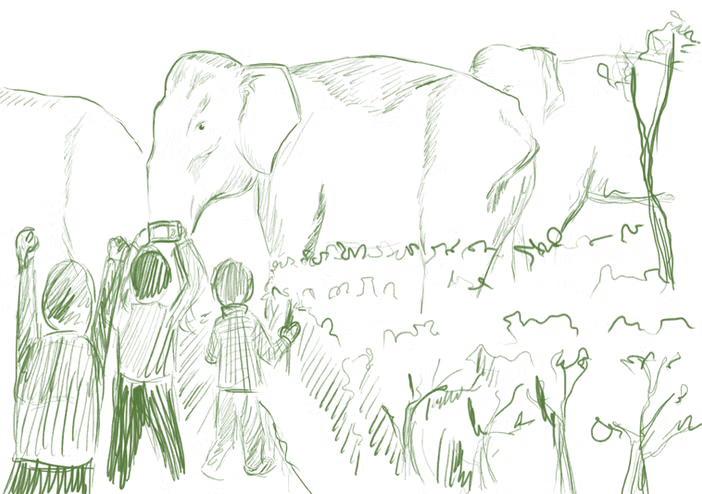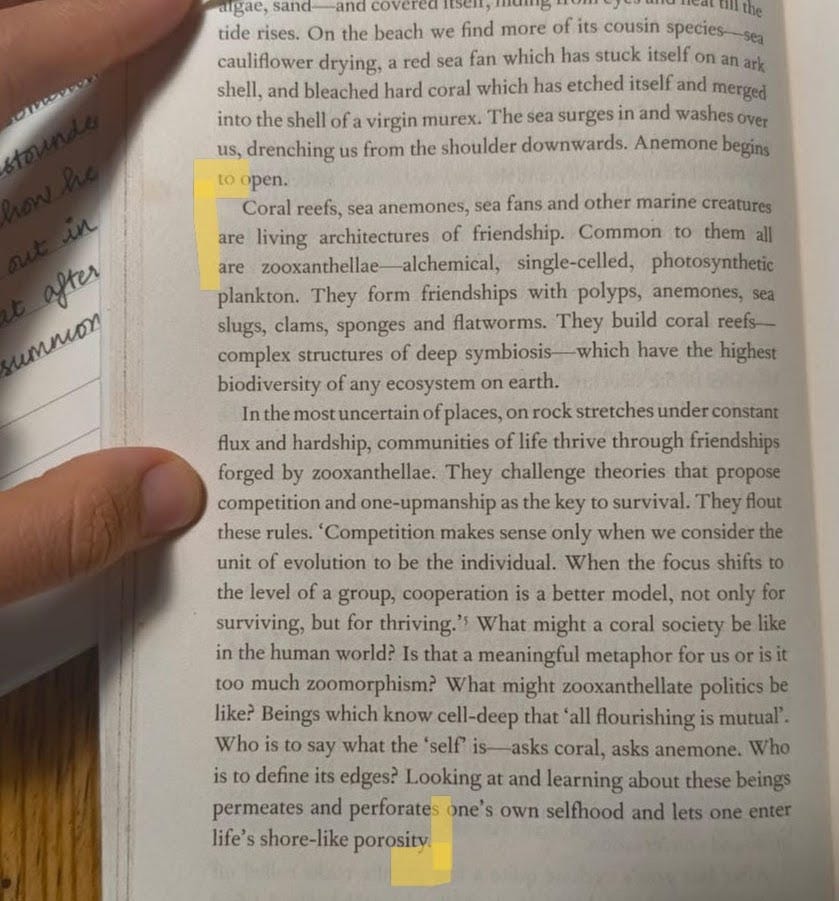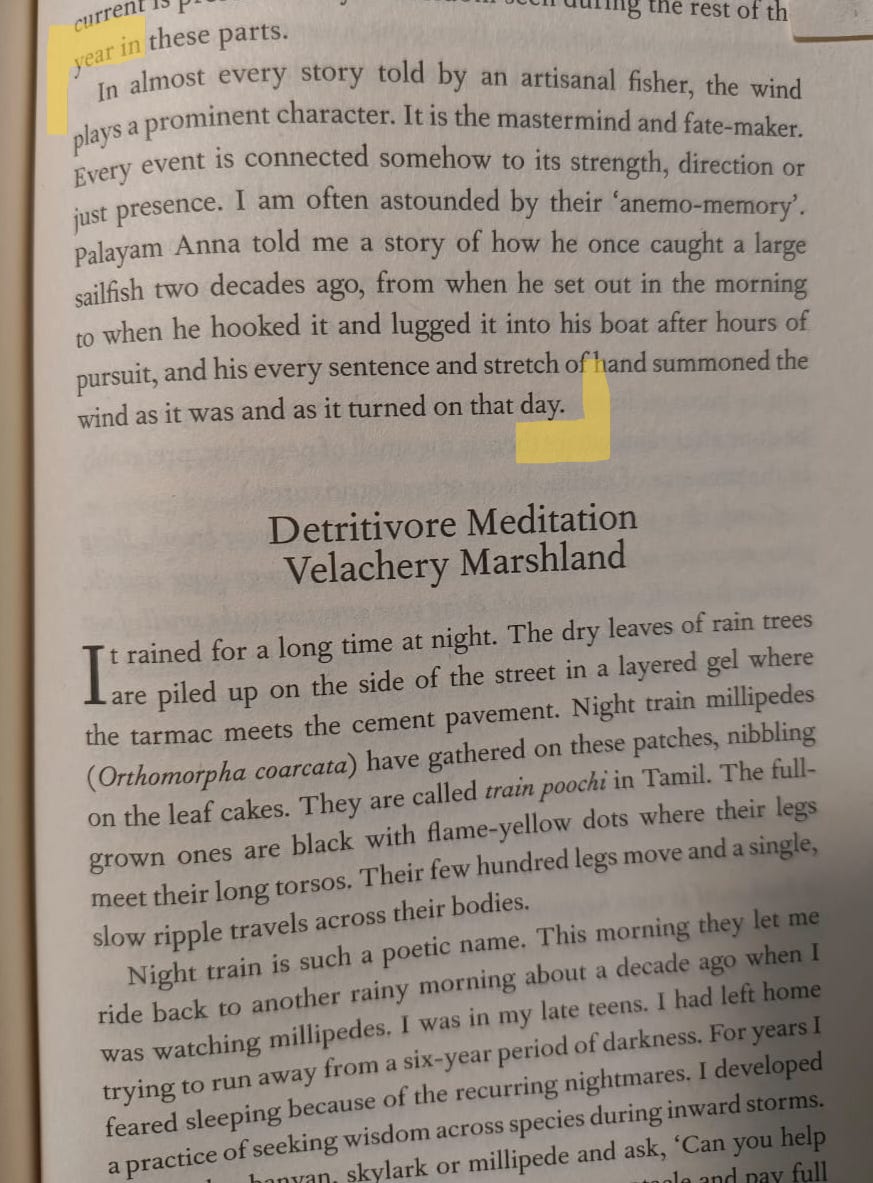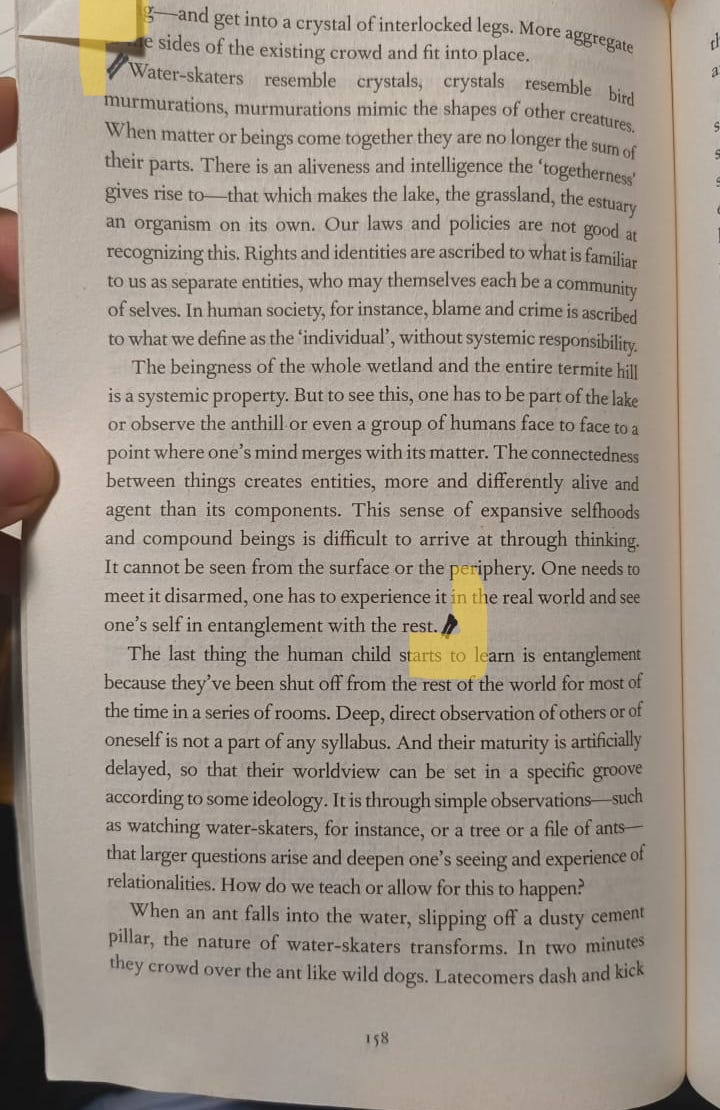Living with the Windows Open | Note #3, Praani
A mugger narrates, "humans can be startling in their tolerance"
Praani ki Kahani
Praani is our note on listening better to the voice of nature, ways of amplifying them, and finding pathways to bring them into our ways of governance. At Agami, we are deeply interested in how rivers, forests, animals, and even the winds and the stones, might speak into our deliberations on justice.
[This Note had originally gone out on August 7th, 2025]
Offering For the Week
Living with the Windows Open
In a Mongabay film, a mugger narrates his own life.
He talks about the humans who live near him, the children who don’t go too close, the farmers who don’t drain the swamp, the mothers who don’t complain about the water. And he says:
“Humans can be startling in their tolerance.”
I wanted to laugh. And then I didn’t; because it is true, and rare, and hard. And entirely possible.
Kartik Chandramouli has directed these small, startling films for Mongabay India - stories about toads, birds and muggers; and the humans who shift their rhythms enough to peacefully live alongside these beings. A farming village stops using pesticide because the Gunther’s toad needs a softer ecology. A river community redesigns access because muggers like to bask. No court ordered it and no policy mandated it. They just decided for themselves.

Somewhere, someone said: Let’s make room. What looks like inconvenience for one is often just consideration for many.
Ramachandra Guha, in conversation with Mongabay India for a different video, calls Indian environmentalism relational and rooted in entanglement. He quotes Gandhi who spoke about living in a room with the windows open; and speaks about how Indian environmentalism, beyond ‘pretty trees and tigers’ has always been about the interdependence of humans and nature. His newest book demonstrates that India’s environmental thought has always been its own: decentralized, rural, embedded, and often led by lived wisdom not borrowed from the West.
Sparks from the Ground

Co-existence at Canopy
Elsewhere, this same instinct has taken the shape of elephant-sized collaboration. In Pakke Tiger Reserve, Canopy Collective’s Elephant Working Group teaches Mahouts positive reinforcement training - using rewards instead of punishment to work with captured elephants. Traditional methods are brutal, leading to retaliation and Mahout deaths. But when trust replaces fear, they’ve found that both species thrive in shared spaces.
Upcoming Dialogues
Later this month, folks across India and the world working on multispecies justice are gathering in Kolkata for Behaviour 2025, the 38th International Ethological Congress. Dr. Nishant Srinivasaiah will be speaking there, and Atreyo will be present too, on August 26th and 29th.
Between Land and Mind
Early in the book Intertidal: A Coast and Marsh Diary, Yuvan Aves offers interpretations of the titular intertidal that traverse the geographical and the metaphysical… ’Intertidals exist between beach and ocean, land and mind, other and self, and so on’. The book explores these interpretations by centering deep observation - of the natural world, the self and where and how the two meet.
He pries open a window into the wondrous intricacies of pelagic beings - how they are organised and how they thrive - offering a different paradigm to think about relationality and alternatives to how human societies are governed and designed.
I find this paragraph about Palayan Anna’s anemo-memory particularly thought-provoking - our experience of life is constantly held and shaped by the animated and animating forces within nature, how do we register them?...
Do we register them at all?
The expansive awareness of Palayan Anna that does not distinguish between human/non-human, animate/inanimate holds yet another kind of wisdom to understand our cohabitation with other entities.
Through the journal entries from different sites - some as close his balcony, others spread across Tamil Nadu’s coastline - Yuvan makes a case for how deep observation of the environment is transformative for the observer and the observed.
It is a quality of attention that ‘does not separate itself from action.’ And this observation-action helps see oneself in the throes of entanglement with the rest; and participate in this enmeshed experience more meaningfully, mindfully and justly.







